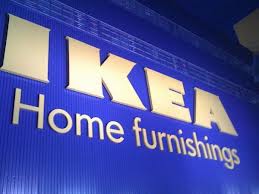In late 2009, a broker rang the doorbell of a newly developed townhouse on the Upper East Side neighborhood of Manhattan. The owner opened the door and the two women had the following exchange:
Broker: Hi. I’m Jane [fake name] from Big Shot Realty [fake company]. I’m working with a client who wants to purchase your house—would you be interested in showing it to him?
Owner: Sorry. It’s not for sale.
Broker: My client is a celebrity Top Chef [his name can’t be mentioned, but it rhymes with ‘Bossy’]. He’s qualified and currently lives on the corner of your block. He constantly raves about how beautiful your house is. Why don’t you show it to him? If he makes the right offer, you can agree to it. If he doesn’t, you can turn him away.
Owner: Why don’t you call my husband and work it out with him?
Broker (calling Husband): Hello, Owner’s Husband. I have a client who’s interested in purchasing your house, etc.
Husband: You know, my wife spent eight long years building this townhouse from ground up. During that time, she broke her foot in a construction accident and ended up in a hospital bed for four months. She has an emotional attachment to the house. If I sell it, she might kill me.
Broker: I understand. I’ve been working with my client for the past five months; he’s a very serious buyer. Your wife was kind enough to show me around the house. I’m positive my client will fall in love with it and put in an offer you cannot refuse. If you still don’t feel comfortable selling the house, just turn it down. We won’t bother you again.
Husband: Fine.
The broker kept her promise. Later that week, she showed the chef the house, and he fell in love with it even more. The very next day, he put in an offer for $10.5 million.
The husband said, “No way. His offer is too low to counter.”
The chef came back at $11 million.
The husband countered with $15 million!
The broker politely explained to the husband that he was crazy. Most houses on the block were selling for between $3 and $7 million (true). But the husband kept saying his house was more special than the rest.
After a while, they came to an agreement at $12.5 million! That’s $6.5 million more than selling price of the most expensive house on the block.
The day before signing the contract, the chef sent his bank appraiser to the house. The appraiser immediately stated that the house was not worth more than $10 million. The bank would finance only up to that amount, meaning the chef would have to fork over an additional $2.5 million if he wanted to buy.
The chef didn’t feel comfortable with going forward, and the deal was dead.
This is an example of the classic phenomenon known as the ‘IKEA effect.’ Most people who buy furniture from IKEA and assemble it themselves think it’s more valuable than it really is, because they built it.
In the same way, when owners or FSBOs put a lot of time and energy into designing or building their homes, they create a deep emotional attachment to it. That leads to the feeling that it’s worth more than it is, which leads to overpricing.
When confronted with a seller that is looking to overprice their home ask them a simple question: “If I had a Mercedes Benz that was worth $50,000… and I was advertising it for $75,000 under what conditions would it sell?” There are only two right answers to this question…
One, only if there was no other inventory would it make sense to price high. Yet there are always other houses selling on the market. Two, if the cars extras were so unique that the person was willing to pay such a premium for them. To which you can always make the argument that the houses in the neighborhood are priced low enough that a buyer can upgrade them to their own taste for almost the same money.
I spoke with owners of the townhouse in early 2012. They told me that, looking back, they believe they should have taken the original offer at $10.5 million. They probably won’t see that number from a realistic buyer again in a long time.
Be realistic. Keep in mind that an appraisal will be conducted prior to closing; you don’t want to lose the deal because the appraisal comes in way below your asking price. To properly price an apartment, you need to convince your seller to price based on state records for what similar properties have actually sold.
Ariel Dagan is a Licensed Salesperson at Keller Williams NYC. He specializes in Upper East Side Townhouses, Condos and Coops for sale. He can be reached at [email protected] or 212 836 8700.




